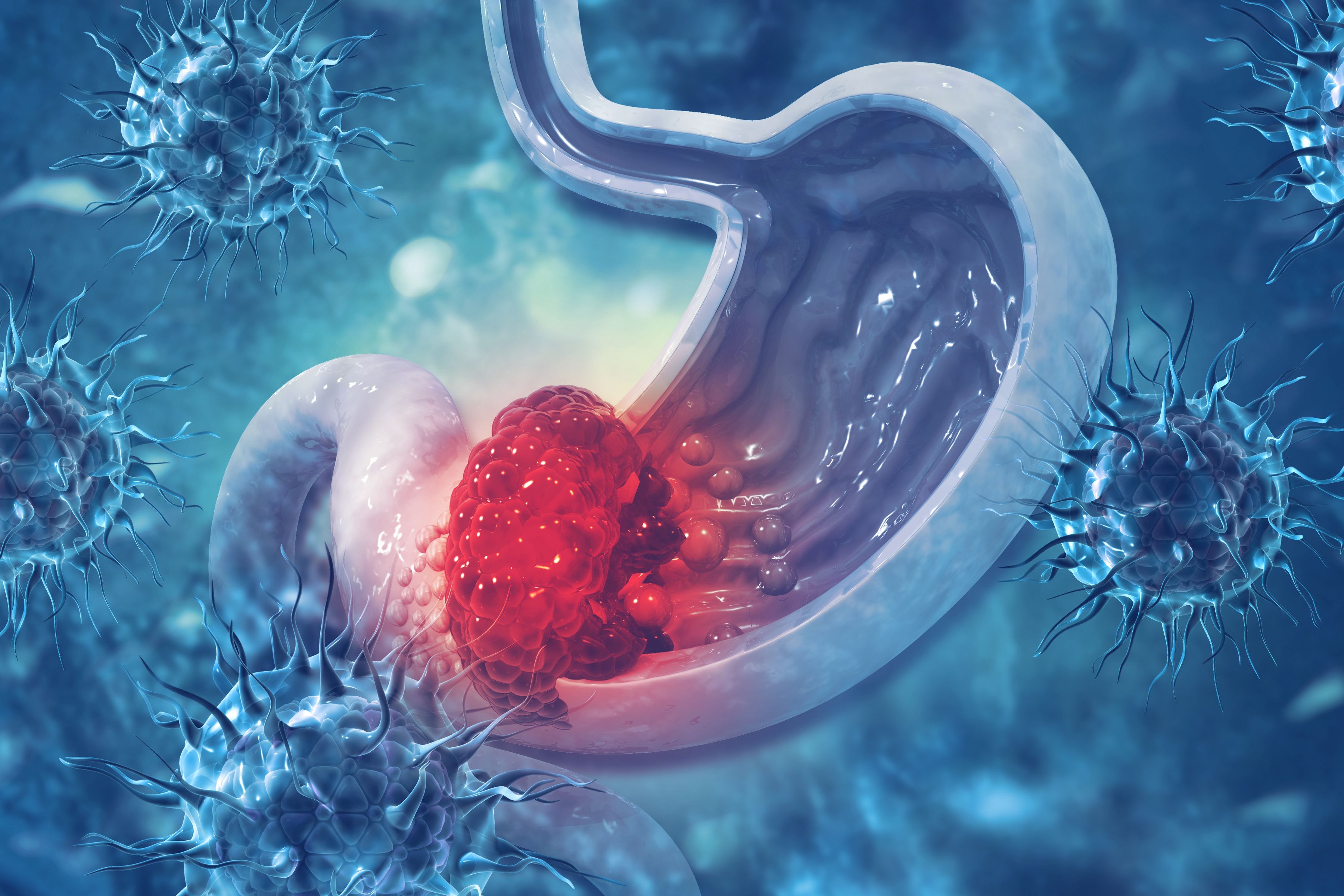FDA Restricts Pembro/Chemo Use for Gastric Cancer
The updated indication limits the use of pembrolizumab and chemotherapy to tumors expressing PD-L1 as determined by an FDA-approved test.
Stomach cancer: ©Crystal Light - stock.adobe.com

- On November 7, 2023, the FDA updated the current indication of pembrolizumab (Keytruda) and trastuzumab (Herceptin), fluoropyrimidine, and platinum-containing chemotherapy for first-line treatment of HER2-expressing locally advanced unresectable or metastatic gastric or gastroesophageal junction (GEJ) adenocarcinoma.
- The new indication limits the combination’s use to patients with tumors expressing PD-L1.
- The FDA also approved the Agilent PD-L1 IHC 22C3 pharmDx as a companion diagnostic device to identify patients with PD-L1-expressing gastric or GEJ adenocarcinoma.
The FDA restricted the existing indication of pembrolizumab plus trastuzumab and chemotherapy for first-line treatment of locally advanced unresectable or metastatic HER2-expressing gastric or GEJ adenocarcinoma to tumors expressing PD-L1 (combined positive score [CPS] ≥ 1) as determined by an FDA-approved test.1
In addition to this updated indication, the FDA approved of the Agilent PD-L1 IHC 22C3 pharmDx companion diagnostic for use in this intent-to-treat population. The device identifies patients with high tumor PD-L1 expression.
In May 2021, the FDA approved pembrolizumab in combination with trastuzumab, fluoropyrimidine, and platinum-containing chemotherapy based on interim analysis results from the phase 3 KEYNOTE-811 trial (NCT03615326).2 Findings presented at the 2023 European Society for Medical Oncology Congress from the second interim analysis at a follow-up of 28.3 months (interquartile range [IQR], 19.4-34.3) for the pembrolizumab arm and 28.5 months (IQR, 20.1-34.3) for the placebo arm demonstrated a median progression-free survival (PFS) of 10.0 months (95% CI, 8.6-11.7) with pembrolizumab vs 8.1 months (95% CI, 7.0-8.5) with placebo (n = 348; HR, 0.72; 95% CI, 0.60-0.87); P =.0002). In patients with a PD-L1 CPS ≥ 1, the median PFS was 10.8 months (95% CI, 8.5-12.5) in the pembrolizumab arm (n = 298) and 7.2 months (95% CI, 6.8-8.4) in the placebo arm (n = 296; HR, 0.70; 95% CI, 0.58-0.85).
Findings from the third interim analysis at a median follow-up of 38.4 months (IQR, 29.5-44.4) in the pembrolizumab arm and 38.6 months (IQR, 30.2-44.4) in the placebo arm showed a median PFS of 10.0 months (95% CI, 8.6-12.2) in the pembrolizumab arm compared with 8.1 months (95% CI, 7.1-8.6) in the placebo arm (HR, 0.73; 95% CI, 0.61-0.87). In the PD-L1 CPS ≥ 1 population, the median PFS was 10.9 months (95% CI, 8.5-12.5) for patients treated with the pembrolizumab/chemotherapy combination vs 7.3 months (95% CI, 6.8-8.5) for patients in the placebo arm (HR, 0.71; 95% CI, 0.59-0.86).2,3
Data from the third interim analysis also demonstrated a median overall survival (OS) of 20.0 months (95% CI, 17.8-22.1) for patients treated with the pembrolizumab regimen vs 16.8 months (95% CI, 15.0-18.7) with placebo (HR, 0.84; 95% CI, 0.70-1.01). The median OS in the PD-L1 CPS ≥ 1 population was 20.0 months (95% CI, 17.9-22.7) in the pembrolizumab arm vs 15.7 months (95% CI, 13.5-18.5) in the placebo arm (HR, 0.81; 95% CI, 0.67-0.98).
The safety profile of the pembrolizumab regimen was consistent with the known safety profiles of the individual agents.1
REFERENCES:
1. FDA amends pembrolizumab’s gastric cancer indication. News release. U.S. Food & Drug Administration. November 7, 2023. Accessed November 9, 2023. https://tinyurl.com/bdf8vvmc
2. Janjigian YY, Kawazoe A, Bai Y, et al. Pembrolizumab plus trastuzumab and chemotherapy for HER2+ metastatic gastric or gastroesophageal junction (mG/GEJ) adenocarcinoma: Survival results from the phase III, randomized, double-blind, placebo-controlled KEYNOTE-811 study. Ann Oncol. 2023;34(suppl 2):S851-S852. doi:10.1016/j.annonc.2023.09.1424
3. Janjigian YY, Kawazoe A, Bai Y, et al. Pembrolizumab plus trastuzumab and chemotherapy for HER2+ metastatic gastric or gastroesophageal junction (mG/GEJ) adenocarcinoma: survival results from the phase 3, randomized, double-blind, placebo-controlled KEYNOTE-811 study. Lancet Oncol. Published online October 20, 2023. doi:10.1016/S0140-6736(23)02033-0
KEYNOTE-859 Outcomes Influence NCCN Guidelines on Pembrolizumab in Upper GI Cancer
April 10th 2024During a Case-Based Roundtable® event, David Zhen, MD, discussed how treatment of upper gastrointestinal cancer with pembrolizumab and chemotherapy is impacted by PD-L1 composite positive score, in the second article of a 2-part series.
Read More
The Impact of the Gut Microbiome in Young Patients With Colorectal Cancer
February 15th 2021In season 2, episode 2 of Targeted Talks, Cathy Eng, MD, speaks with Benjamin Weinberg, MD, about the gut microbiome, and how the presence of certain microbiota impact the onset and intensity of disease as well as the potential response to certain treatments.
Listen